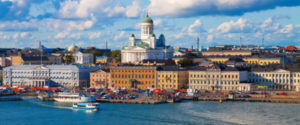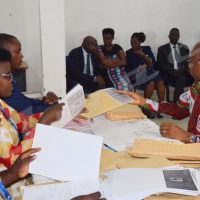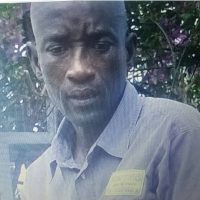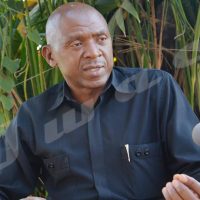The Finnish capital hosted consultations between Burundians behind closed doors over the past few days. A colourful participation.
Written by Agnès Ndirubusa, translated by Pierre Emmanuel Ngendakumana

Helsinki hosted the consultations on a way out of Burundi crisis.
What if Tanzanian President Magufuli had been mandated by his counterparts to persuade President Pierre Nkurunziza to make more concessions and that Helsinki consultations were made possible to that effect? These are the questions that remain unanswered among Burundians since the announcement of the two-day consultations that began last Monday in Finland. In any case, this meeting that was held behind closed doors and organized by Crisis Management Initiative (ICM) arouses public curiosity. Some are skeptical and sometimes suspicious on the one hand and others perceive it as a boost to the process of ending the crisis on the other hand.
With regard to the personalities who attended the meeting, the 100% Cndd-Fdd delegation, part of Bujumbura, was led by Ombudsman Edouard Nduwimana, former Minister of the Interior and one of the closest collaborators of President Pierre Nkurunziza. Another important element of the delegation was Maurice Mbonimpa, Executive Assistant to the Head of Burundi National Intelligence Service (SNR). “It was the first time that the dialogue was attended by a member of the body of defense or security,” said a politician. Senator Evelyne Butoyi , Félicien Nduwuburundi, Chairman of the forum of political parties, Kekenwa Jérémie, former chairman of the forum and Pascal Ruhovyumuhoro, Burundi Ambassador to Scandinavia also attended the consultations.
On the side of the opposition coalition in exile (CNARED), Helsinki consultations were attended by the vice-president of the coalition, Chauvineau Mugwengezo, Frodebu party president Frédéric Bamvuginyumvira, Jean Minani and Julien Nahayo. Léonidas Hatungimana,who rebelled against CNDD-FDD government and Ntwari Gustave, who represented MSD party, were also present in Helsinki.
Towards an exit from the crisis?
Reliable sources say that the Helsinki consultations aimed to find a way out of the crisis. In any case, both sides welcomed the progress of the meetings. “Every beginning is difficult. The meeting ended smoothly. ”
The other success is the face to face interaction between those who often accuse others of being coup plotters wanted by Burundi justice and those who tax the opponents with belonging to a bloodthirsty regime.
They spoke face to face without any fear.
All the participants were called on to respect the Chatham House Rule (a rule used to regulate the confidentiality of information exchanged at a meeting). Similarly, it was forbidden to reveal the identity of other participants to avoid pressure on both sides. “It was a sign that everyone took things seriously. Everyone realized that the situation was serious, “commented one analyst.
After two years of crisis, the time is just right. The dialogue led by the EAC is deadlocked and Bujumbura lives in austerity, under the economic sanctions imposed by the West. Opponents in exile on their side struggle to show that they still exist and the international community has so far shown its limits. Hence, the need to end the impasse. But one question remains: To what extent is each camp ready to compromise?
Reactions
Agathon Rwasa, Against “One step forward two steps backward”
For this political leader, the question is what led the government and CNARED to engage in a dialogue. They have been rejecting the idea of dialogue to date. “It does not matter. It’s always a satisfaction to see people sitting at the same table to talk. Agathon Rwasa hopes that it will not be “one step forward and two steps backward”.
Abel Gashatsi: “I am for any consultation that can help”
The president of Uprona party has said he supports any consultation that can help for a way out of the crisis. “May no one say they have not been associated. “Abel Gashatsi wonders, however, whether the government will abandon the prosecution of those in exile wanted by Burundi justice. In such cases, it will also be necessary to think of those who languish in prison for the same crimes.
Hamza Venant Burikukiye: “A consultation that is not extraordinary.”
This human rights activist welcomes any consultation that can help. He said this type of consultation was not extraordinary and added that the Burundian Ombudsman was playing his role. “In Kayanza, he had promised to meet political actors in exile. It’s done. ”
Pacifique Nininahazwe, “I am against impunity”
For this human rights activist, if the Helsinki meeting leads to an inclusive and unconditional negotiation that respects the Arusha Agreement, it will be beneficial. However, the meeting in Helsinki contains the basic flaw of President Mkapa’s facilitation: the lack of consultation with officials of “Halt to the third term campaign” and other key actors. Pacifique Nininahazwe wonders if the meeting would not be a lure to delay the opening of the ICC investigation. The Executive Assistant of the SNR boss was present in Helsinki. “This could be an indication that President Nkurunziza wants to negotiate impunity for his crimes. He said “We are against any process that would entrench the impunity of crimes against humanity”.
Box
What about CMI?
Crisis Management Initiative is an independent conflict resolution organization. It uses mediation and dialogue as effective means of preventing, managing and resolving violent conflicts.
Through informal but high-level interactions, CMI asserts that its added value lies in the unofficial nature of these commitments.
And when coordinated with official efforts, it is an essential part of finding solutions.
This organization provides support to mediations and helps states, organizations and key people to be better equipped.
It also plays a constructive role in working directly with national actors. To this end, it creates trust, inclusion and analytical frameworks that emphasize political compromises. CMI provides venues for informal exchange of ideas under national processes.
The Crisis Management Initiative was created in 2000 by Martti Ahtisaari, former UN diplomat, Finnish Head of state and a renowned mediator in international conflicts. In 2008, he was awarded the Nobel Peace Prize for his leading role in the independence of Namibia, Serbia’s withdrawal from Kosovo and Aceh autonomy in Indonesia. Martti Ahtisaari is said to be close to Benjamin Mkapa, Facilitator in Burundi crisis.



















 IWACU Open Data
IWACU Open Data

